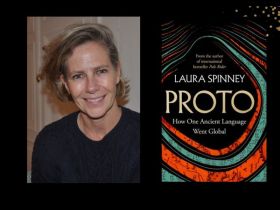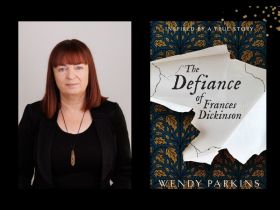For writers who’ve submitted their work to a competition, the judging process can seem like a mysterious, heavily-cloaked situation in which several hundred books are fed conveyor belt-style into a machine and then months later, only a mere handful make it out the other side festooned with gold stickers on their covers and feted by the literati as being the best of the best.
But what really happens during the prolonged and often fraught process of a judging panel trying to sift through a mountainous pile and award qualities as vague and nebulous as “literary excellence”? Well, almost always there will be disagreements among the judges, politics will always be a contentious issue and luck plays as much a role as any agreed-upon merit.
This is small consolation for those whose works have never graced the golden list (or indeed been on the long or short list) but take heart, it should be pointed out that all judges see their role as a privilege and take their arbitrations very seriously. Often the eventual winners have been subjected to heated debates as to whether they deserve the honour at all but sometimes irrespective of the rigorous discussions, the book you’re championing for and want to triumph will not prevail for a myriad of reasons.
Over the course of 25 odd years as a critic, I’ve judged many a literary competition, across many artforms: from short stories (The Big Issue and Writers Victoria), to poetry and drama (Victoria Premier’s Literary Awards), to Children and Young Adult (ARA Historical Novel Prize) and lots of fiction (The Age Book of the Year Award, The Sydney Morning Herald Best Young Novelist award). I am about to read submissions for the Red Room Poetry Fellowship and am once again on the panel of the Dorothy Hewett Literary Awards, which accepts unpublished submissions of fiction, non-fiction and poetry. The winner’s work will eventually be turned into a book.
Indeed, on my living room floor right now there are small untidy bundles of printed out creative pieces of work that my cat uses as a maze and that present a tripping hazard to navigate.
To demystify the judging process a little, I am going to answer some oft-asked questions.
How do people even become judges?
You do not nominate yourself; usually you are commissioned by the governing body of an organisation that needs a panel of presiding judges. It is rare to be a solitary judge because a democracy of opinion is valued. Judges are drawn from industry and are likely to be booksellers, agents, critics, literary magazine editors, small press publishers – anyone who reads widely and critically for a living.
Do you read every single page of every single book or manuscript?
Certainly not; that would be an impossible task, given the tight timelines granted. Most judges read several chapters to gauge the writing quality. If the prose or poetry piques interest then you read on. Remember, this is a competition. If the writing does not appeal for whatever reason, it is unlikely that the reader will continue. There are many other works to get to, after all.
How long do you have to read and assess the submissions?
It varies depending on the competition but usually only a few months, which makes it very challenging, particularly if you are squeezing your judging in between a day job and normal life admin. It helps to have good time management skills and to be a quick reader.
Just how many books/submissions do you have to judge?
A lot. More than you’d think. When I was judging short stories for The Big Issue fiction editions – I did this for eight consecutive years – submissions each year surpassed 500. It is not uncommon for book entries for major awards to be over 100 in number.
The Dorothy Hewett Award attracted over 200 entries both this year and last year but our panel of four judges mean we have to read only 50 submissions each. After conferring among ourselves, a shortlist is then drawn up and then whittled down to the final winner.
In other competitions the judges are expected to be across all the entries.
Are judges paid for their work?
Yes, but the figure is nominal (usually between $1000-$2500). The remuneration is not at all commensurate with the time and effort it takes to read, assess, and meet with the other judges. Given that a lot of competitions award winners with hefty prize winnings (in the tens of thousands), the amount the judges take away is paltry. So why do we do it? Ego? Ha. Partly. Mainly because it’s an honour to be asked and there is professional satisfaction to be able to help shape Australian literature and to be a book influencer pushing an outstanding title into the limelight.
What happens when judges don’t agree on the longlist, shortlist or winner?
A lot of debate ensues and plenty of compromises. There is usually a head judge, a convenor, and in cases of tense disagreements between the panel, they will step in to make the final decision. Often there is plea bargaining going on. So, you’ll say ‘Ok, if you agree for me to nominate this book for the shortlist, then I will (reluctantly) agree to let your favourite book be on there as well.’
Judges need to be advocates and defenders of their own choices. You have to be prepared to fight for your favourite entries. Being meek and retiring means you’ll end up deferring to the other judges. Even if your choice does not eventually win, you can at least try and present a well-reasoned argument on why it deserves the accolade. It may well end up on the short or long list.
I have been overruled by others on the judging panel a number of times. If there are three judges, two can gang up on the recalcitrant one to ensure their choice prevails. Sounds brutal? It can be.
Conversely, I have been a convening judge and hence armed with the final sway of power. In one competition I loathed a book so much I refused to allow it to be on the shortlist, overriding the other judges.
If any judge on a panel has a strong dislike to an entry, that submission does not make it to the final stages. Judges have to present a unified front to media and to the literary community. Internal squabbling notwithstanding, they have to be overall satisfied with their decision.
Isn’t it all just personal taste anyway?
Well yes, but judges are hopefully chosen from a variety of both bookish and socio-economic and racial backgrounds so as to garner a broad representation of the discerning reader. Most judges are both passionate and knowledgeable about the genres they are asked to partake in.
I think there should be different judges every year for any competition because a plurality of voices is important and every reader has their own biases when it comes to what they like and dislike. Having the same judging panel annually disallows new perspectives of reading and critiquing.
Does a writer’s identity affect judging?
In an ideal world you should be simply assessing the work in front of you and not have to concern yourself about its writer. This is why I prefer to judge works that, like the Dorothy Hewett unpublished Award, specifies that there is to be no name affixed, so you have to judge blindly. This criterion ensures you are not unduly influenced by the writer’s track record, their publishing history or their background. But yes, it’s disingenuous to assume that a writer’s name (and all its attendant implications) won’t affect how they are read and judged. Before deciding a winner, judges look at the whole package and that does includes a writer’s identity.
Why do some books seem to take out all the major awards?
I have often asked myself the same question but there is no simple answer. Sometimes, the quality is so unmistakable that successive judges across different competitions can’t help but fall in thrall to its charms. Sometimes, the book hits the zeitgeist of publishing trends for a particular year. Sometimes, yes, there is lack of imagination from a suite of judges, who think, ‘Well, so it’s won x award, it must be good. Let’s give it this prize too.’
I think there should be a cap on how many awards a writer can win in a year. I don’t think it’s a fair system that one writer can amass all the major prizes (and all the money), particularly when arguably there are other books – perhaps on the shortlist – that are equally deserving. Qualifying merit is, after all, an arbitrary matter.
Do you ever disagree with a judging panel’s decision in a competition you are not involved in?
All the time. I have read books that I’ve been less than impressed with, only for it to go on and win awards both state-wise and federally.
Do literary awards really matter?
It depends on the writer and the competition. Some awards offer large sums of money, which the canny writer can use as a stipend to work on their next book. Their publishers too, can bask in the glory of having produced a winning book and of course the hopeful flow-on of being able to sell more copies, as a curious public rushes in to see what all the fuss is about.
Read: Mills & Boon: How to write steamy scenes
However, there are cases where the winning entry is too obscure, or not popular and reader-friendly enough so even being an award-winner can have negligible effects on future sales. There can be a disconnect between what literary judges deem as “excellent” and what the general book-buying masses will deign to read.





